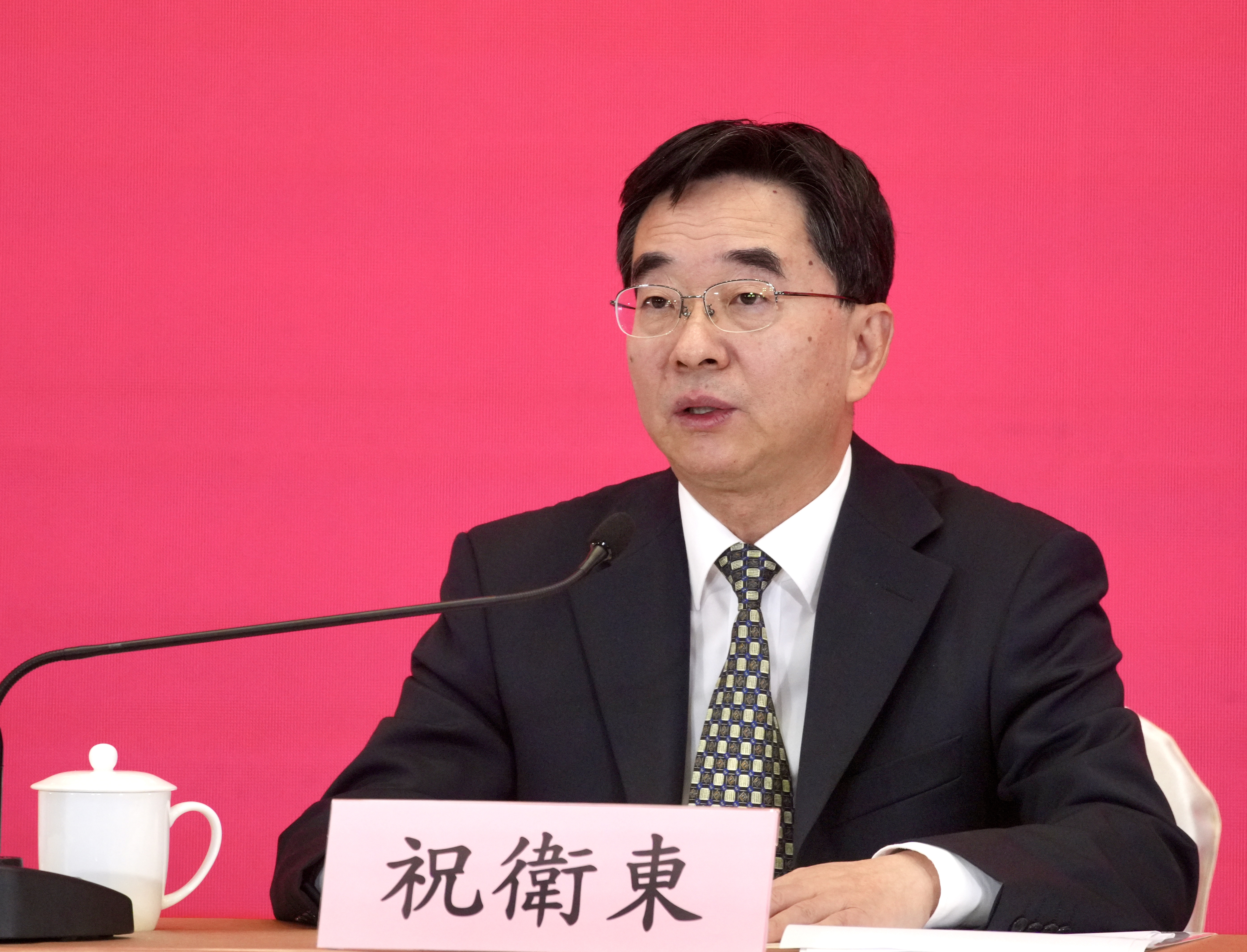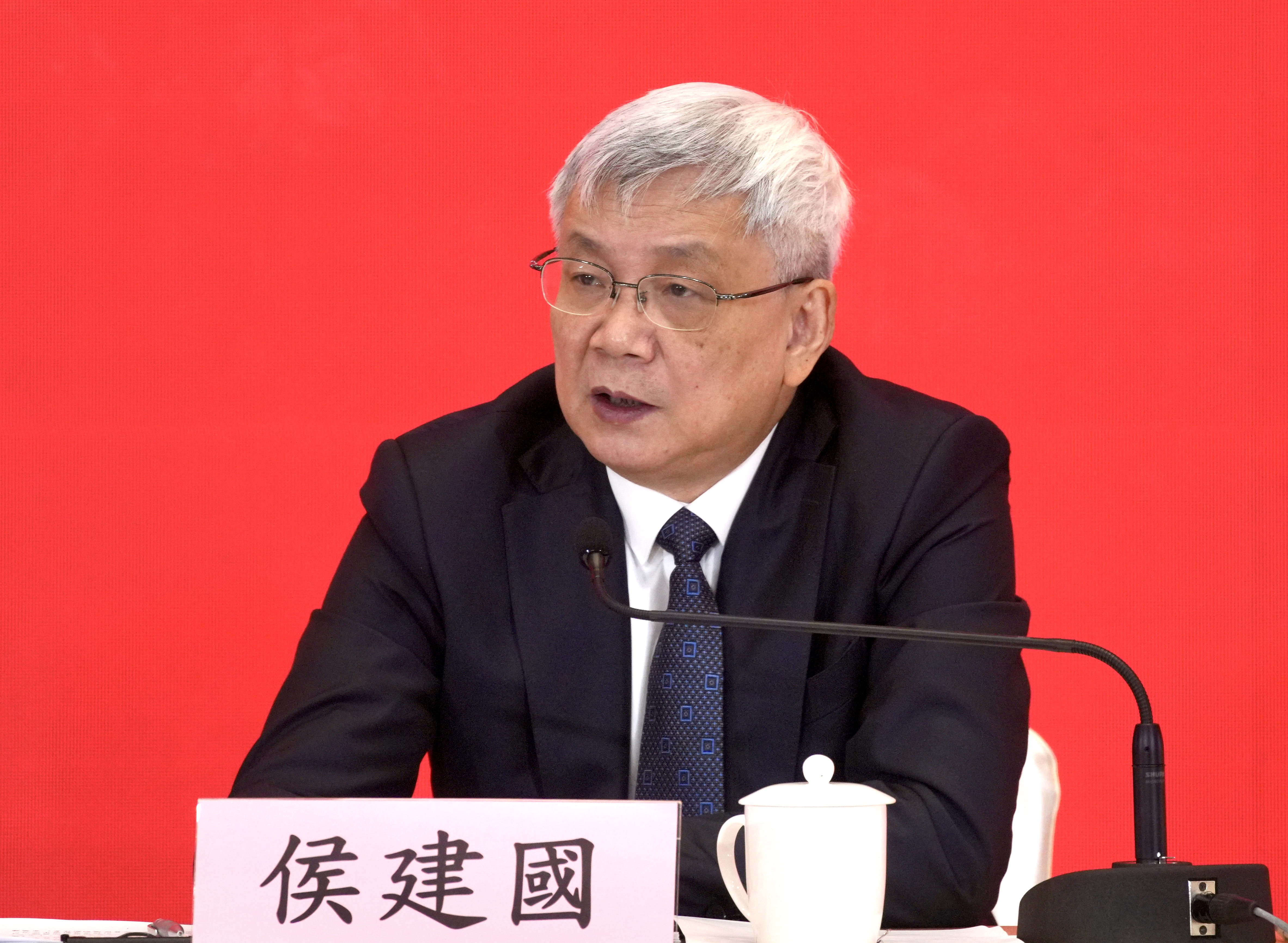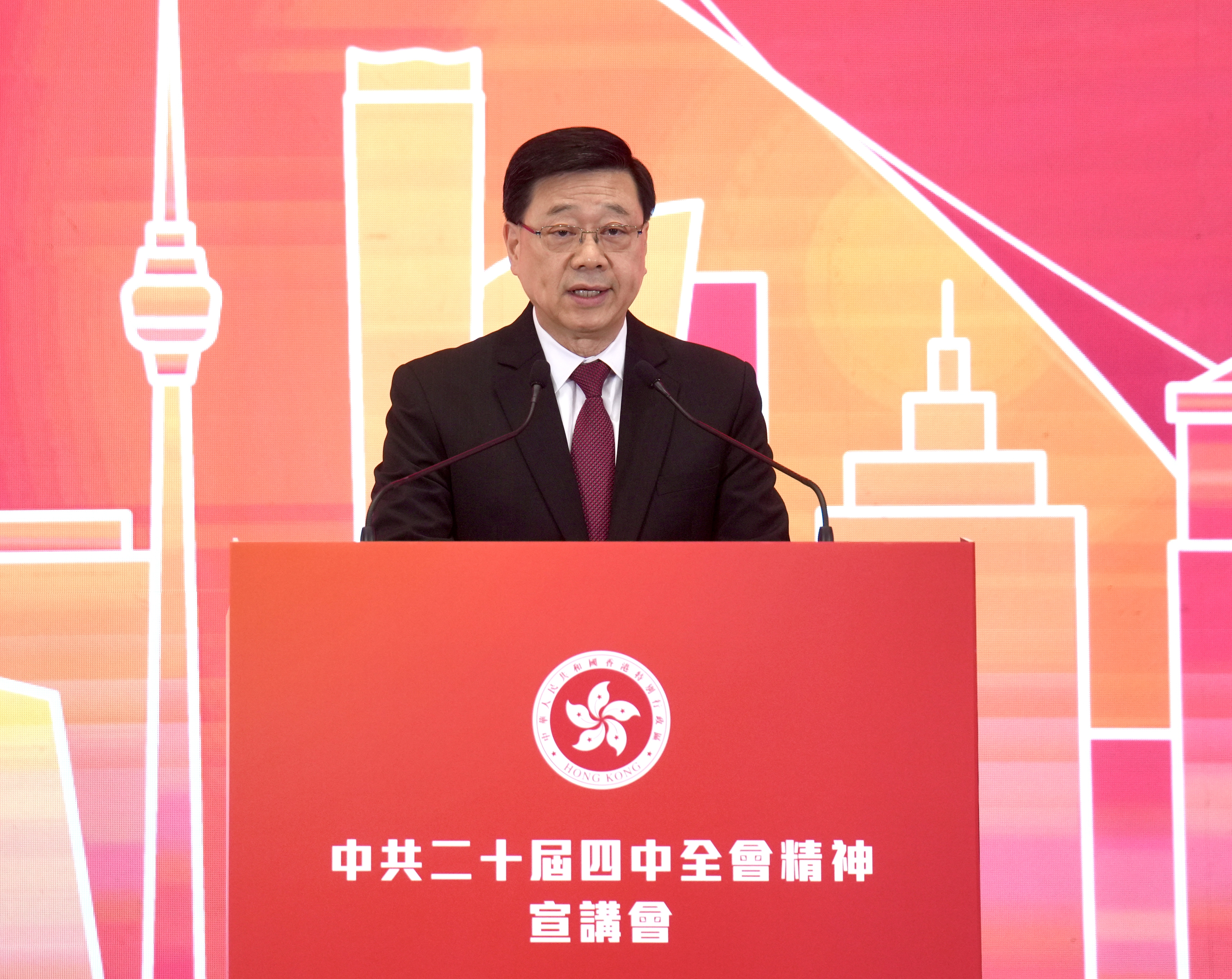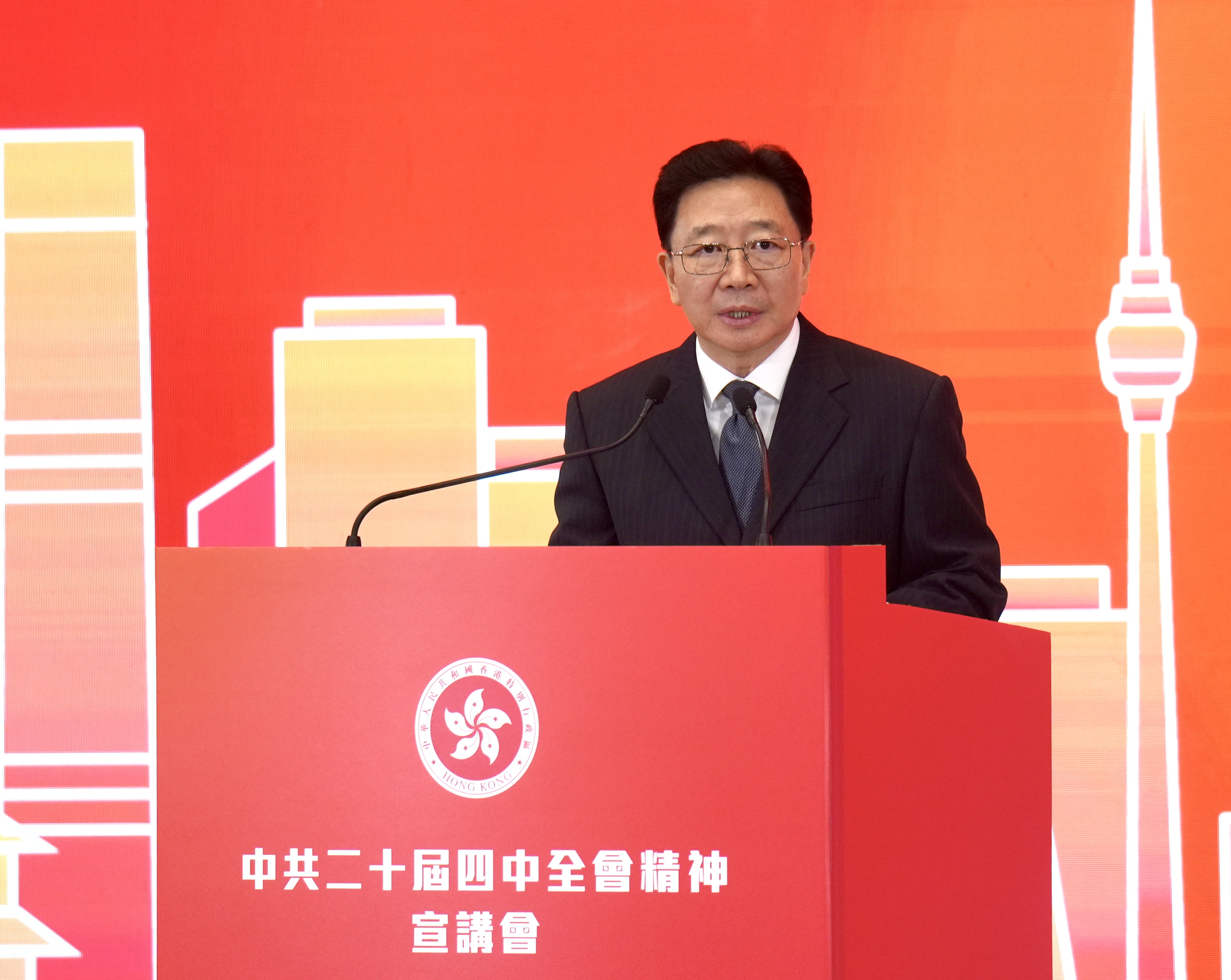
The nation will continue to provide more substantial and broader support for the Hong Kong and Macao special administrative regions, enabling them to proactively align development with the country’s strategies and 15th Five-Year Plan (2026-30), members of a high-level central government delegation said on Tuesday.
Zhu Weidong, deputy director of the Office of the Central Commission for Financial and Economic Affairs, as well as deputy director of the Office of the Central Leading Group for Rural Affairs, Communist Party of China, spoke at the second seminar in Hong Kong, sharing the essence of the fourth plenary session of 20th CPC Central Committee.
The delegation, which also includes Hou Jianguo, president of the Chinese Academy of Sciences, had held similar sessions in Macao over the weekend.
The morning session, held at the HKSAR government headquarters at Admiralty, was attended by representatives from a wide section of society, including Hong Kong deputies to the National People’s Congress, senior HKSAR officials and leaders of community associations.
Zhu said the nation’s extraordinary development during the 14th Five-Year Plan (2021-25) period has successfully navigated a complex international environment and significant domestic challenges.
Economically, he said China’s high-quality development has advanced solidly with an average annual growth rate of 5.5 percent in recent years, crediting the nation as the world’s primary growth engine by contributing about 30 percent to global economic expansion.
He cited major technological breakthroughs as key achievements, saying China now produces more than 60 percent of the world’s new energy vehicles, and has made significant strides in semiconductors, quantum technology, and biomedicine despite external pressures.

Zhu added that China’s reforms and opening-up have deepened continuously, with the fundamental institutions and rules of the market economy constantly improving.
Hou outlined strategic visions for Hong Kong’s role in national development, emphasizing the city’s integration into the 15th Five-Year Plan.
He said the development plan includes dedicated provisions to promote the long-term prosperity and stability of the two SARs, stressing the need to enhance infrastructure “hard connectivity” and institutional “soft connectivity”, as well as people-to-people bonds to drive integration.
Hou also highlighted Hong Kong’s pivotal position as an international financial, shipping and trading center.
By strengthening Hong Kong’s role as a “super-connector” and “super value-adder” for two-way opening-up, the city is poised to become a major channel for inbound global resources and a crucial platform for China’s “going global” strategy, allowing the SAR to play greater role in supporting the nation’s high-standard opening up, he said.

Hong Kong Chief Executive John Lee Ka-chiu and Zhou Ji, director of the Liaison Office of the Central People’s Government in the HKSAR, also spoke at the event.
Lee said the mainland team’s visit “fully embodies the great importance” the central government places on Hong Kong’s development and its care for Hong Kong compatriots.
He pointed to the critical timing of the plenary session, held as the 14th Five-Year Plan concludes and the 15th Five-Year Plan is being formulated.
Despite a complex world environment and the effects of the COVID-19 pandemic, Lee said the nation has achieved “world-renowned remarkable accomplishments” during the 14th Five-Year Plan period with significant advancements in economic, technological and comprehensive national strength.
He called the 15th Five-Year Plan a strategic blueprint and clear guidance for the SAR’s development, helping to chart a better future for the city.

Zhou said Hong Kong has entered its “best period” for focusing on economic development.
He attributed the city’s successes to the comprehensive and accurate implementation of “one country, two systems” and the strong backing of the central government.
Gordon Lam Chi-wing, a Hong Kong deputy to the NPC who attended the seminar, told China Daily the high-level event was a “powerful injection of confidence”, signaling the central government’s proactive commitment to not just “supporting”, but “actively “promoting” Hong Kong's prosperity and stability as an integral part of the national blueprint. This will empower the city to meet future challenges while contributing to the nation’s overall development.
Lam said the most inspiring perspective was the emphasis on “technological innovation as a strategic pivot for Hong Kong’s integration into national development”.
“This reframes Hong Kong’s role from the traditional ‘super-connector’ to a core node within the nation's self-reliant science and technology system,” he said.
Lam urged businesses to thoroughly study the policies, drive technology upgrades and cross-boundary collaboration, and optimize talent strategies, while individuals should upskill themselves in emerging fields and expand their professional networks across the Guangdong-Hong Kong-Macao Greater Bay Area.
Contact the writer at stacyshi@chinadailyhk.com


